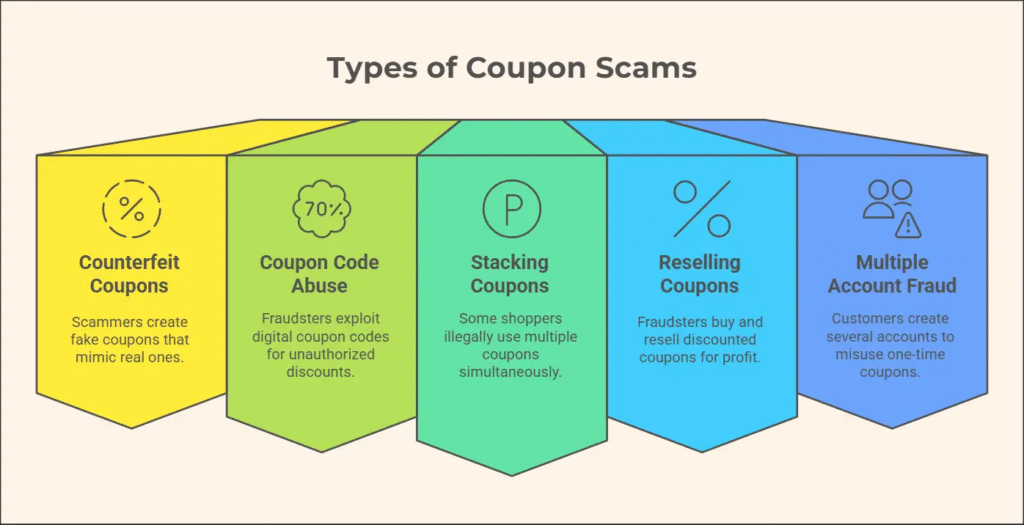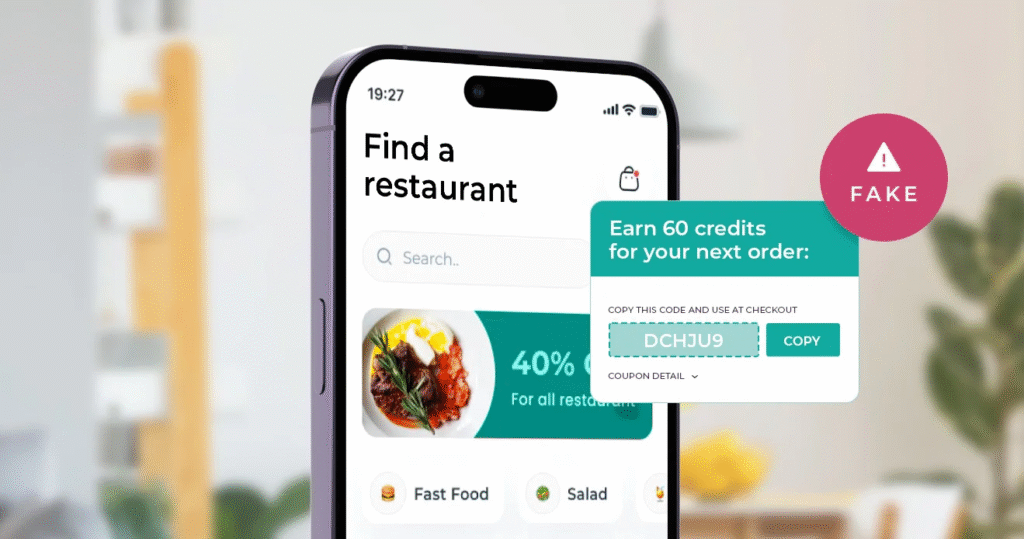How to Spot Fake Coupon Codes & Find Real Discounts

In the vast digital marketplace, coupon codes have become a popular way to save money on online purchases. However, not all coupon codes are legitimate. Some are designed to mislead consumers, leading them to fraudulent websites or causing unnecessary purchases. For learners seeking affordable access to coding platforms like edX, Coursera, Codecademy, and DataCamp, distinguishing between genuine and fake coupon codes is crucial.
In this comprehensive guide, we’ll explore how to identify fake coupon codes and where to find authentic discounts, ensuring you can enhance your skills without falling victim to scams.

Understanding Coupon Code Fraud
Coupon code fraud involves the creation and distribution of fake or misleading discount codes. These fraudulent codes can lead to various issues, such as unauthorized charges, data theft, or redirection to malicious websites. In the context of online learning platforms, scammers may exploit users’ desire for affordable education by offering fake discounts.
For instance, a scammer might create a fake coupon code for a platform like Codecademy, leading users to a phishing site designed to steal personal information. Recognizing the signs of such fraud is the first step in protecting yourself.

Common Signs of Fake Coupon Codes
Identifying fake coupon codes can be challenging, but certain red flags can help you discern authenticity:
- Unbelievably High Discounts: Offers like “90% off” or “free lifetime access” are often too good to be true. Legitimate platforms rarely offer such steep discounts.
- Suspicious URLs: Check the website’s domain. Official platforms will have domains like
codecademy.comorcoursera.org. Be wary of domains with extra characters or misspellings. - Lack of Expiration Date: Authentic coupon codes usually have an expiration date. If a code doesn’t specify when it expires, it might be fake.
- Grammatical Errors: Poor grammar or spelling mistakes in the coupon’s text can indicate a fraudulent source.
- No Official Branding: Legitimate coupons often include the platform’s logo or branding. Absence of such elements can be a warning sign.
How Fraudulent Coupon Codes Operate
Fraudulent coupon codes often operate by redirecting users to malicious websites or collecting personal information. For example, a user might enter a fake coupon code, only to be directed to a phishing site that mimics the original platform’s login page. Unsuspecting users may then enter their credentials, unknowingly compromising their accounts.
Additionally, some fake coupon codes are designed to track users’ browsing habits or install malware on their devices. These tactics can compromise personal data and security.

Where to Find Real Discount Codes
To ensure you’re accessing legitimate discounts, consider the following sources:
- Official Platform Websites: Always check the platform’s official website for any promotions or discounts. For instance, Codecademy and Coursera often list current offers on their homepage.
- Reputable Coupon Websites: Websites like SimplyCodes and CouponFollow aggregate verified promo codes from trusted sources. These sites regularly update their listings to ensure accuracy.
- Browser Extensions: Extensions like Honey and Rakuten can automatically apply the best available coupon codes during checkout. These tools can save time and ensure you don’t miss out on discounts.
- Email Newsletters: Subscribing to newsletters from coding platforms can provide early access to promotions and exclusive discounts.
- Social Media Channels: Platforms like Twitter and Facebook are often used by companies to announce flash sales or special promotions.
Tips for Verifying Coupon Codes
Before using a coupon code, verify its authenticity with these steps:
- Check the Source: Ensure the coupon is from a reputable source. Avoid codes shared on unverified forums or social media posts.
- Test the Code: Apply the code during checkout to see if it works. If it doesn’t, it might be expired or invalid.
- Contact Customer Support: If unsure, reach out to the platform’s customer support to confirm the validity of the coupon code.
- Use Secure Websites: Ensure the website’s URL begins with “https://” and displays a padlock icon, indicating a secure connection.
Staying Safe While Using Coupon Codes
To protect yourself while using coupon codes:
- Avoid Public Wi-Fi: Do not enter sensitive information when connected to public Wi-Fi networks. Use a VPN for added security.
- Enable Two-Factor Authentication: Use two-factor authentication on your accounts to add an extra layer of security.
- Monitor Account Activity: Regularly check your accounts for any unauthorized activity. Report any suspicious actions immediately.
- Use Strong Passwords: Create complex passwords and avoid using the same password across multiple sites.
Conclusion
While coupon codes can offer significant savings, it’s essential to be vigilant to avoid falling for scams. By recognizing the signs of fake coupons and sourcing codes from reputable platforms, you can enjoy genuine discounts without compromising your security. For learners seeking affordable access to coding platforms, utilizing verified coupon codes ensures both savings and safety.
Frequently Asked Questions (FAQs)
1. How can I tell if a coupon code is fake?
Look for signs like unusually high discounts, suspicious URLs, lack of expiration dates, grammatical errors, and absence of official branding.
2. Are browser extensions like Honey safe to use?
While generally safe, it’s essential to be aware of any potential issues. Some users have reported concerns about selective display of discount codes and reattribution of sales, which could affect the effectiveness of these tools.
3. Can I use expired coupon codes?
Expired coupon codes typically won’t work. Always check the expiration date before applying a code.
4. Are printable coupons safe to use?
Printable coupons can be safe if they come from reputable sources. Avoid downloading coupons from unknown websites or emails.
5. What should I do if I fall victim to a coupon scam?
Report the incident to the platform’s customer support and monitor your accounts for any unauthorized activity. Consider changing your passwords and enabling two-factor authentication.
Author Profile
- At Learners View, we're passionate about helping learners make informed decisions. Our team dives deep into online course platforms and individual courses to bring you honest, detailed reviews. Whether you're a beginner or a lifelong learner, our insights aim to guide you toward the best educational resources available online.
Latest entries
 Career GrowthSeptember 28, 2025Coursera vs edX – Which is Better for Coding?
Career GrowthSeptember 28, 2025Coursera vs edX – Which is Better for Coding? Career GrowthSeptember 28, 2025Best Budget-Friendly Coding Bootcamps
Career GrowthSeptember 28, 2025Best Budget-Friendly Coding Bootcamps Career GrowthSeptember 3, 2025Codecademy Discount Code 2025 – Up to 50% OFF Pro Plans
Career GrowthSeptember 3, 2025Codecademy Discount Code 2025 – Up to 50% OFF Pro Plans Online LearningAugust 20, 2025Best Coding Platforms for Beginners – 2025 Guide
Online LearningAugust 20, 2025Best Coding Platforms for Beginners – 2025 Guide






